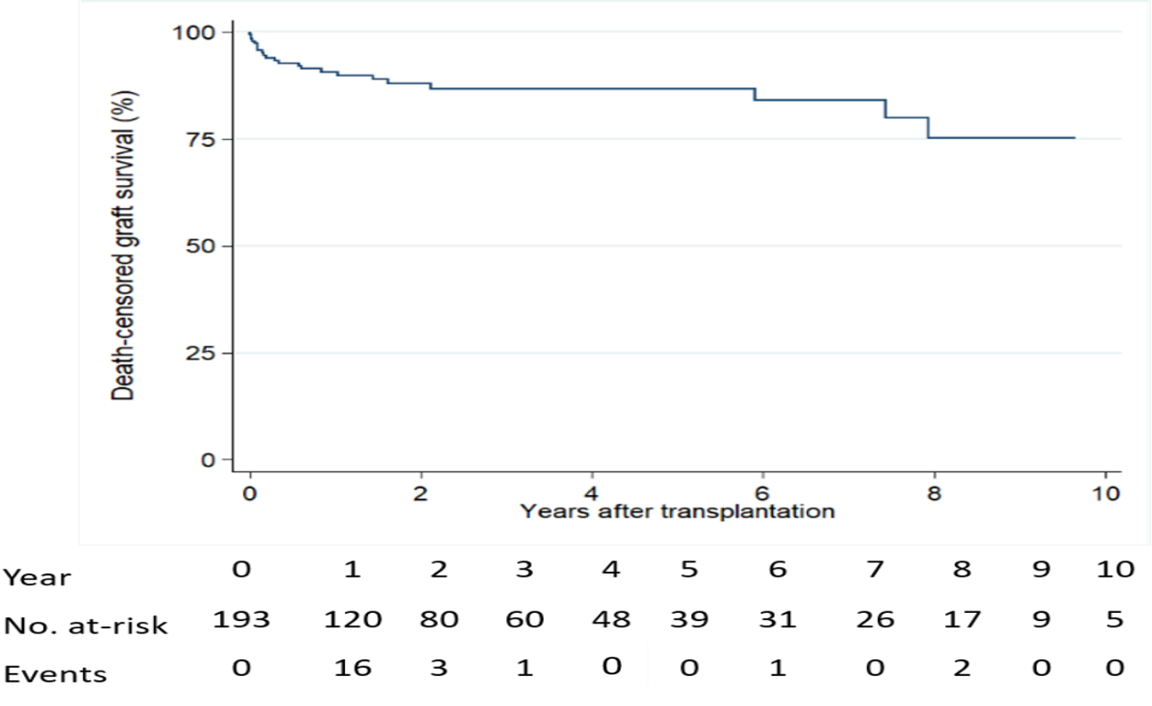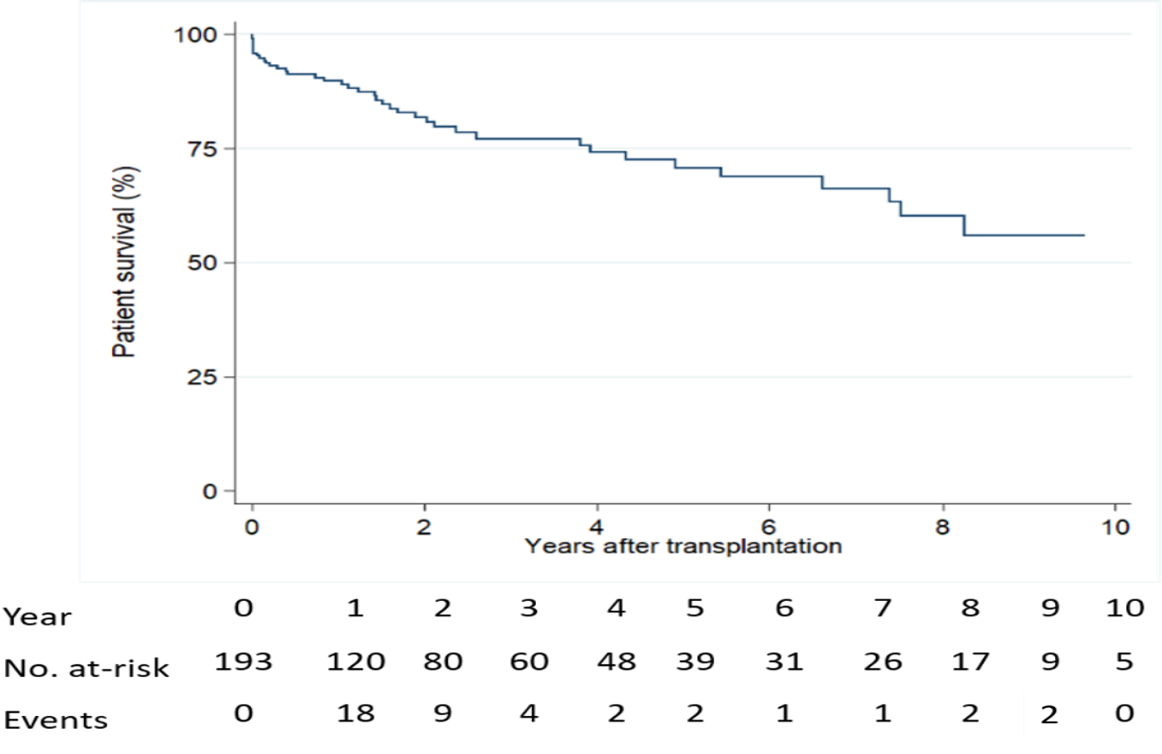Patient and graft survival of elderly kidney transplant recipients: A ten years follow-up
Yenifer Sanchez-Avila1, Nasly Patino-Jaramillo2, Andrea Garcia-Lopez 2, Fernando Giron-Luque 2,3.
1Transplant Nursing, Colombiana de Trasplantes, Bogota DC, Colombia; 2Research, Colombiana de Trasplantes, Bogota DC, Colombia; 3Transplant Surgery, Colombiana de Trasplantes, Bogota DC, Colombia
Introduction: Kidney transplantation is considered the most effective therapy for chronic kidney disease. Recently, kidney transplantation is increasing in elderly recipients (1). Thus, aged patients who have a kidney transplant have relevant advantages reported in the literature such as better survival, improving quality of life (QoL), less risk of death (2,3). We aimed to characterize and assess kidney transplant elderly patients by their graft survival, renal function, sociodemographic features, clinical outcomes, and mortality in kidney transplantation.
Materials and Methods: We retrospectively analyzed 193 patients older than 60 years who received a kidney transplant from 2008 to 2019. Our study included sociodemographic variables and clinical outcomes like 1, 5 and 10-year patient survival and death-censored graft survival. We calculated by a Cox regression analysis the independent risk factors affecting graft and patient survival.
Results and Discussion: The mean recipient age was 64.62 ± 3.82 years old. The 1-, 5-, 10-year death-censored graft survival rates were 90%, 86% and 75%, respectively (Figure 1). The main mortality causes were infections and cardiovascular disease. Patient survival was 89%, 70% and 55% at 1, 5 and 10 years, respectively (Figure 2). Independent graft loss risk factors were age >70 (HR 4.2; 95% CI 1.1-15.3), female sex (HR 2.7; 95% CI 1.01-7.3) and unsuitable adherence (HR 8.1; 95% CI 2.1-30.7) during the first year of kidney transplantation.
Conclusion: We suggest that kidney transplantation is safe and beneficial for elderly recipients. There is a need to determine suitable older recipients based on objective selection criteria where age should not be a barrier to the kidney transplant.


[1] Wright LS. Kidney Transplantation in Older Adult Recipients. Nephrol Nurs J. 2018;45(5).
[2] Carmen M and Martín R, Conejos C, Amaranta A, Díaz F, Mirada C, Esther A, et al. Calidad de vida y trasplante renal en mayores de 65 años. 2009;12(1):26–30.
[3] Segall L, Nistor I, Pascual J, Mucsi I, Guirado L, Higgins R, et al. Criteria for and Appropriateness of Renal Transplantation in Elderly Patients with End-Stage Renal Disease: A Literature Review and Position Statement on Behalf of the European Renal Association-European Dialysis and Transplant Association Descartes Worki. Transplantation. 2016;100(10):e55--e65.
There are no comments yet...